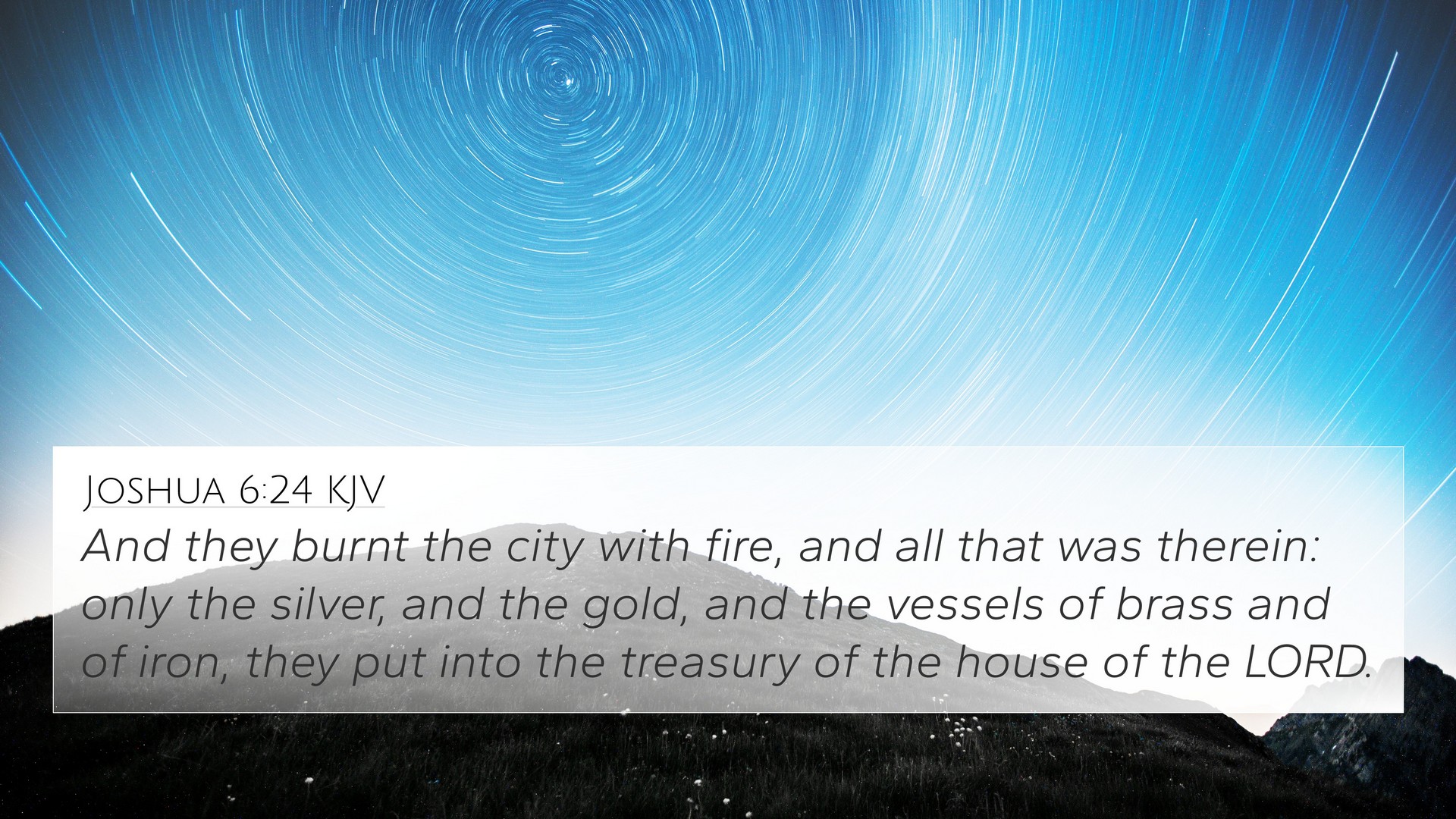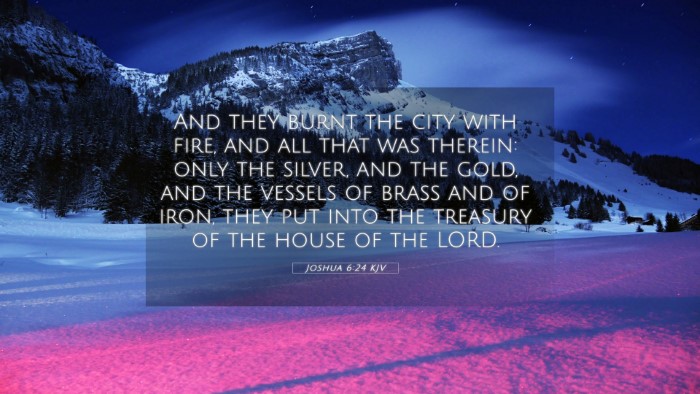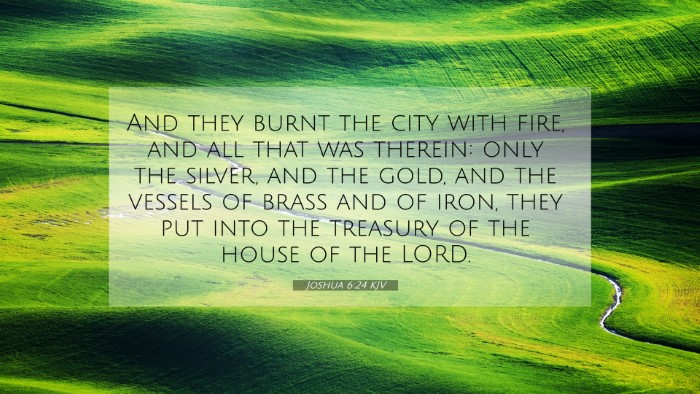Joshua 6:24 - Verse Meaning and Interpretation
Joshua 6:24 states, "And they burnt the city with fire, and all that was therein: only the silver, and the gold, and the vessels of brass and of iron, they put into the treasury of the house of the Lord." This verse marks a significant moment in the narrative of the Israelites as they conquer Jericho, emphasizing the outcomes of divine judgment and the necessity of devoting certain spoils to God.
Contextual Overview
To fully understand Joshua 6:24, it is essential to consider the broader context of the conquest of Jericho. Following their miraculous crossing of the Jordan River, the Israelites, under Joshua's leadership, were tasked with the destruction of Jericho, a city that symbolized rebellion against God (see Joshua 6:1-21). The command to destroy the city completely illustrated God's judgment against the Canaanites and the totality of His instructions for the conquest of the Promised Land.
Thematic Significance
This verse illuminates the themes of obedience, judgment, and sanctity of the sacred. As per Matthew Henry's commentary, the destruction of Jericho signifies the end of unholy and unrighteous practices. By burning the city and all within, the Israelites demonstrate complete adherence to God’s decree (Exodus 23:24). Moreover, the preservation of valuables, like gold and silver, stresses the importance of dedicating certain items to God’s service, establishing prior biblical principles (see Leviticus 27:28-29).
Interpretation from Various Commentaries
-
Matthew Henry: Emphasizes the total destruction of Jericho as a representation of God’s unparalleled power and judgment. He highlights the importance of cleansing the land from the Canaanites' idolatrous practices.
-
Albert Barnes: Comments on the symbolic act of fire as a divine judgment and the sanctification of the spoils. The vessels collected serve as tangible items dedicated to God, portraying an acknowledgment of His provision.
-
Adam Clarke: Underlines the moral implications of the passage, illustrating obedience to God vs. the temptation of greed, advocating for proper usage of God's bounty in fulfilling divine purposes.
Cross-Referencing Biblical Texts
Several related scriptures offer deeper insights into Joshua 6:24:
- Genesis 15:16 - God's prophecy of the Canaanites’ judgment.
- Exodus 22:20 - The command against worshipping other gods.
- Leviticus 27:28-29 - Devotion of the first fruits and dedicated items to the Lord.
- Deuteronomy 7:2 - Instructions to destroy the Canaanite nations without mercy.
- 1 Kings 15:13 - Reference to idolatry among the people and their consequences.
- Romans 12:1 - The call for believers to present their bodies as living sacrifices, holy and acceptable to God.
- Hebrews 11:30 - Acknowledgment of faith leading to the fall of Jericho's walls.
Understanding Inter-Biblical Dialogue
The exploration of Joshua 6:24 through cross-references not only enriches comprehension but also unveils connections between various scriptural texts. For instance, linking this verse with Hebrews 11:30 highlights the ultimate victory through faith, while its connection to Leviticus 27 emphasizes the concept of holiness and dedication. This presents a comprehensive view of how God desires His people's complete obedience and sanctification in every aspect of life.
How to Use Bible Cross-References
Engaging in cross-referencing can enhance individual and group Bible studies. Utilizing resources such as a Bible concordance or Bible cross-reference guide allows readers to uncover parallels and thematic connections across different passages. This method not only aids in sermon preparation but also cultivates a deeper understanding of the Scriptures and the relationships within them.
Conclusion
Joshua 6:24 stands as a powerful reminder of God's sovereign authority over nations and the necessity of obedience to His commands. By examining this verse within the context of related biblical texts through cross-referencing, readers can appreciate the richness of God's Word and its relevance throughout biblical history and its application in contemporary faith.








